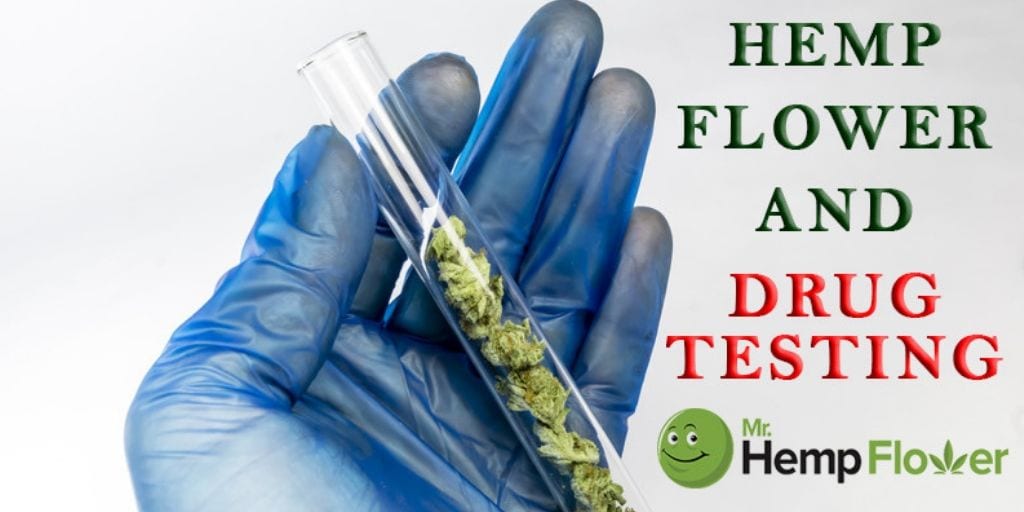
CBD oil can have side effects that include high blood pressure, anxiety, depression and more. The fact that there is no standard method to test CBD oil products can make it difficult or impossible to determine what each one contains. Therefore, it is best that you find a provider which submits their products for independent lab testing.
Side effects of CBD oil
CBD oil can also cause dry mouth. CBD interacts in the mouth with the salivary receptors to block saliva production. People with dry mouth may find this effect beneficial. If you have dry or sensitive mouth, you need to drink more water.
Talking to your physician is the best thing to do to avoid these adverse effects. If you are already taking prescription drugs, consult a doctor before trying CBD oil. CBD oil can interact with other medications, so it is important not to take CBD oil while you are on any other medication. This is especially important for those who are taking prescription drugs and have blood pressure issues. Side effects can include nausea, general sickness, and other side effects.
Some sources claim that CBD can cause the development of tumors in the liver. But, this isn't true. CBD is known to alter liver enzyme levels. These enzymes kick-start certain reactions in the body. This does not necessarily indicate liver cancer. It is simply a sign that your liver has been subject to trauma.
CBD oil can make you sleepy. If you experience this, you should reduce the dose or take it only before bed. You should not take CBD oil with caffeine as it can increase your blood pressure. Sunlight can boost your energy and make it easier to fall asleep at night. It is used often to combat anxiety. However, excessive CBD oil use can lead to anxiety and irritability.
CBD has been suggested to help depression. It is believed to affect the brain's levels of serotonin, which may be helpful for those suffering from depression. It can also cause seizures and epilepsy symptoms.
Its effect on anxiety
CBD oil works by increasing brain levels of serotonin, making it a natural antidepressant. It has been shown to decrease anxiety without side effects similar to pharmaceutical anxiety medication. This effect is attributed to its ability to interact with the receptors of the Endocannabinoid System (ECS) in the body. This system regulates sleep and pain management, immune function, and other physiological activities.
In one large retrospective study, researchers treated patients with CBD for a range of anxiety and sleep complaints. Patients had their monthly charts reviewed and found that there were significant changes in anxiety levels, as well as improved quality of sleep. CBD's ability to improve sleep quality was particularly apparent in Parkinson's patients, who have impaired motor and cognitive functions. Although CBD has not been extensively studied, some recent studies indicate that CBD may be able to reduce the anxiety-provoking symptom of snoring.

CBD has been shown to reduce cortisol levels in animals and humans. Chronic inflammation is linked to high levels cortisol. CBD could also be a sedative that reduces cortisol release. The study also found that moderate CBD oil intake decreased the levels of cortisol, which in turn reduced anxiety levels and promoted sleep.
While there are still many things to learn about CBD oil and its effects on anxiety, the research is promising. It is definitely worth trying. The safest and most effective way to use CBD oil in your body is from natural plants. CBD oil is a natural remedy for anxiety and pain relief.
Its effect on depression
There is growing evidence to support the use of CBD oil for treating depression. There are many clinical studies to show that CBD oil is effective in treating depression. Animal studies have shown promise. To prevent depression, it is best to see a doctor before using CBD oil. You should also know that CBD can increase the side effects of some antidepressants.
CBD oil has been shown to increase the levels of a neurotransmitter linked with anxiety and depression. Specifically, it works on 5-HT1A receptors, which are found in the brain. These receptors regulate mood and behavior. CBD has been shown to increase GABA's activity in the brain. GABA reduces electrical activity which reverses the stress response.
CBD interacts well with the brain's receptors for serotonin. This has been confirmed by scientific research. Serotonin plays a vital role in mood regulation and happiness. As such, keeping serotonin levels in balance is a key therapy for depression. Researchers believe CBD may affect brain serotonin receptors, although more research is needed. In animal models and humans, the presence of these receptors has been linked to lower levels of depression.
Depression is a serious illness that can have devastating consequences. According to statistics, around 264 millions people worldwide have experienced depression. Several drugs are available for treating depression, but some come with significant side effects.
Its impact on high blood pressure
CBD oil should be recommended by The World Health Organization for those with high bloodpressure. Its safety profile makes CBD oil an attractive option for people suffering from hypertension. You should always consult your doctor before you start using CBD oil. You can have your blood pressure medication adjusted if necessary.
High blood pressure can be caused by a variety of factors, such as stress, alcohol, smoking, and exercise. A diet rich in fruits and vegetables may also be beneficial. It is important to exercise regularly and manage your weight. It's important to learn how to manage your stress, which can also lower your blood pressure.
There are many different types of CBD oils on the marketplace. The most effective form is usually an oil or tincture. It is easier to absorb because it has a higher level of bioavailability. You can also choose a sublingual form, which delivers CBD to your whole body. CBD products cannot be regulated like prescription medications, so it is important that you carefully consider which CBD products you choose. You need to look for high-quality products that meet specific criteria.
CBD has many health benefits. It decreases anxiety, improves focus, reduces stress levels, and helps with anxiety. Several studies have shown that CBD can reduce hypertension symptoms and decrease blood pressure. It also lowers your chance of suffering from stroke. Further research is needed to fully understand CBD's effect on cardiovascular disorders.

Although CBD oil has been shown to be a great help for people with high blood pressure, it cannot be considered a cure-all. It should be used with lifestyle changes as well as a healthy diet. Safely managing high blood pressure is possible by avoiding smoking and alcohol and getting regular exercise.
Its influence on cancer
CBD oil has been proven to help improve the survival rate for cancer. This is possible by altering several CYP enzymes. Moreover, CBD may interact with medications that are metabolized by the liver. However, it is not known how CBD works.
Researchers have conducted a series of studies on the effect of CBD on various types of cancer. The CBD oils used were diluted in DMSO. Three cell lines were tested in vitro and the CBD oils had a strong effect on their viability. Two NSCLC cell lines, H460 and SW480, were significantly less viable due to CBD oil. The CBD oil also reduced invasion. The A549 cells didn't show any significant cell death but the CBD-treated cells had a significantly lower rate for tumor invasion.
CBD also inhibits EGF/EGFR pathways and inhibits phalloidin. Both proteins are critical for the invasion tumor cells. These effects are reminiscent of the ones observed in lung cancer. Furthermore, CBD also inhibits the production of a number of proteins including TIMP-1, which is critical for the growth of cancer.
While more research is required to establish the exact role of CBD for the treatment of cancers, it is clear that CBD can be used to help patients manage their symptoms and improve their quality of life. Many cancer patients suffer from nausea or vomiting after chemotherapy. This can lead to weight loss and a decreased appetite. These patients can use CBD oil to manage their symptoms during chemotherapy.
Study after study on CBD oil's effects on cancer found that CBD oil has a combination of THC and CBD. These results suggest that CBD could increase the effectiveness of conventional cancer treatments. It has been shown to stop tumor growth in animal models and test tubes. Although the research on how CBD can treat cancer is incomplete, scientists remain optimistic about its benefits and are optimistic about its future potential.
FAQ
Is CBD a good company to invest?
The market for hemp-based products continues to grow as people become increasingly aware of their benefits. There could be $1B worth of hemp products on the shelves by 2022.
Market growth is expected to continue at a rate of more than 20% annually until 2020 when it will reach $2.5 billion.
Hemp oil can be found in many beauty and health products, including lotions, shampoos and lip balms, moisturizers and body butters.
A number of companies produce CBD-infused beverages, pet foods, dog treats, snacks, and other food items.
CBD is currently legal in all 50 US states. This may change quickly. CBD is legal in all 50 states, but more research will be conducted to determine its potential uses. Businesses will have an easier time operating legally.
With these factors in mind, it's clear that investing in CBD can be a lucrative venture.
How big is the global CBD market?
The global CBD market was valued at $US 3.5 billion in 2015, according to Euromonitor International. This represents a 10% increase from 2014.
The report projects that this figure will reach $US6.4 billion by 2020. This represents an average annual growth rate 12%.
By 2020, CBD products will account for approximately half of all global hemp-derived products.
This includes CBD oils and other CBD products like food, beverages, cosmetics and pet care items.
Which CBD products are most popular?
CBD products are popping up everywhere. They are used for pain relief and anxiety. The market is vast and growing rapidly.
But what do people buy CBD for? This is how it affects brand owners.
Statista reports that CBD products have relaxing properties. They are also being purchased for their anti-inflammatory properties.
If your product contains both CBD and THC, it can be used for medicinal and recreational purposes.
But what about brands that only focus on one specific purpose? For example, if a company sells CBD for stress relief, then it won't have much competition.
Additionally, a brand that focuses solely on CBD for medical purposes will enjoy a large customer base.
But, if a brand is looking to target recreational users they will need to develop a unique selling position (USP). A USP is essentially a benefit or feature that distinguishes a brand from its competitors.
Some brands offer free shipping while others offer bulk discounts.
Is CBD's market saturated?
CBD industry has a growing rate of 25% annually. This growth is expected not to stop for at least five more years. In fact, the industry is projected to grow from $2 billion today to $5 billion by 2020.
Two companies dominate the CBD market: GW Pharmaceuticals (Canndoc Ltd) and Canndoc Ltd. Both companies are focused on the development of pharmaceutical-grade CBD products. Both have not been very successful to date. Both are struggling in the marketplace to gain traction.
Cannabidiol (CBD) is an extract of cannabis that contains less than 0.3% THC. It doesn't produce any psychoactive effects. It is used to treat epilepsy and other conditions. It can also be used as a dietary supplement.
There are many options for CBD products. Some CBD products contain whole plant extracts. Others use CBD-rich cannabinoids.
All of these products share one thing: They contain low levels THC.
This makes them legal under US federal law. However, this doesn't mean that you don't need to follow local laws when selling CBD products. Always check your state's laws regarding CBD products.
Additionally, CBD products in some states are illegal. These include California, Colorado, Florida, Mississippi, Missouri, New York, North Carolina, Ohio, Oklahoma, Oregon, Pennsylvania, Rhode Island, South Dakota, Texas, Utah, Virginia, Washington, and Wisconsin.
If you live in one of these states, then you will probably want to avoid making CBD products.
What are the prospects for the CBD industry in the future?
The future is bright for the CBD industry. It is clear why so many people are getting on board with this industry. With CBD products making up over $1Billion worldwide, it's easy for people to see why this market has grown exponentially.
In fact, according to Statista, global sales for cannabidiol (CBD) were expected to reach $22.4 billion in 2019. That's an increase of almost 200% from 2018!
Also, the CBD market is expected to grow at a compound annual rate of 22.5%. This would translate to almost $6.8 billion in revenues by 2022.
This is great news for companies looking to enter this space as well as those already operating in the sector. However, we must be aware that the CBD market is still very much in its infancy and will face some challenges along the way.
How can companies successfully market CBD products in a regulation-compliant manner?
The FDA does not regulate hemp as an agricultural commodity. The Controlled Substances Act governs all other cannabis derivatives, such as marijuana. CBD has not been subject to any specific regulations.
CBD is legal in 29 states. However, federal law still considers CBD illegal. This uncertainty is a problem for CBD-product sellers.
The FDA also has guidelines for how CBD products should be advertised. The FDA requires that all CBD products clearly disclose their THC content. Companies cannot claim that CBD helps treat certain medical conditions without scientific evidence to support this assertion.
The FDA also requires manufacturers to provide detailed information about their manufacturing processes and quality control measures. To demonstrate safety and efficacy, the FDA requires companies to perform clinical trials.
Companies should consider these factors when developing their own marketing strategies.
Statistics
- The use of these products is likely to become even more widespread if the World Health Organization's recommendation that CBD no longer is scheduled in the international drug control conventions is adopted by the United Nations member states [201]. (ncbi.nlm.nih.gov)
- The inhibition of FAAH is predicted to lead to an increase in brain and plasma concentrations of AEA, which acts as a partial agonist at CB1R and CB2R, thereby increasing endocannabinoid tone [92, 110]. (ncbi.nlm.nih.gov)
- As a substance that was federally illegal before the passage of the 2018 Farm Bill, hemp-derived cannabinoids with no more than 0.3% THC still face a regulatory grey area. (forbes.com)
- OralWhere HED is the human equivalent dose, and Km is a correction factor estimated by dividing the average body mass (BM) of the species (60, 0.020, and 0.150 kg for 11 humans, mice, and rats, respectively) and by its surface area (see: Nair et al. (ncbi.nlm.nih.gov)
- however, one study also found that these effects were virtually abolished when the original media (a nutrient broth agar) was replaced with one containing 5% blood (increasing the minimum concentration to ~160 μM CBD) [179]. (ncbi.nlm.nih.gov)
External Links
How To
What are the common issues in the CBD industry?
The market for CBD is growing at an astonishing rate. However, there are still many challenges facing businesses looking to enter this space. These include lack of consumer awareness and high costs of entry, limited capital access, and regulatory uncertainty.
Many people don't know much about CBD or how it works. They are unable to make an informed decision about buying CBD products.
Many CBD companies depend heavily on word of mouth marketing. This can be costly as it involves advertising and staffing to promote the brand.
High production costs are another problem facing new entrants in the CBD industry. The raw materials needed to create CBD products are quite expensive. To make CBD oil, hemp must be grown in certain climates and soil types.
To grow enough hemp for CBD oil production, it costs approximately $1,000 per acre. Many small farmers can't afford to begin.
Access to capital is another challenge for new entrants in the CBD market. Banks are often discouraged from helping people start businesses because of the stigma that surrounds the industry.
There is also regulatory uncertainty around the sale of CBD products. There are no established guidelines regarding the marketing of CBD products.
Although some states have passed legislation restricting CBD product sales, this has not become a national policy.
Only Nevada, Maine, and Nevada have legalized recreational pot.
Massachusetts and Michigan have considered similar measures.
These changes could mean that CBD manufacturers will be more competitive.
These factors are why many entrepreneurs prefer to work from home than open a physical store.